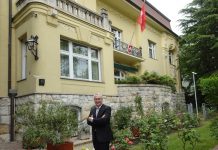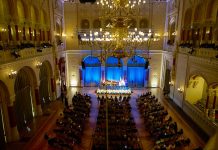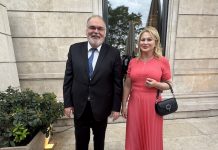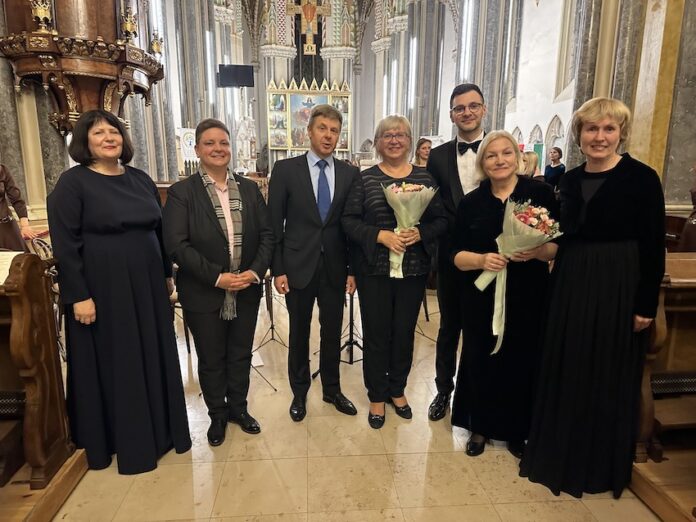Edited by Anna Popper
Baltic Unity Day, observed on 22 September, commemorates the Battle of Saule in 1236, a significant event in the history of the Baltic peoples. The annual holiday aims to further strengthen bonds, friendship and cooperation, fostering a sense of unity and togetherness among the people of the Baltic nations. To mark this occasion, H.E. Agnese Kalniņa, Ambassador of the Republic of Latvia to Hungary, and H.E. Mindaugas Rukštelė, Ambassador of the Republic of Lithuania to Hungary, hosted a joint concert that took place at Budapest’s Inner City Parish Church (officially the Church of the Blessed Virgin Mary – which is often referred to as the Downtown Parish Church), the city’s oldest church dating back to the 11th century.
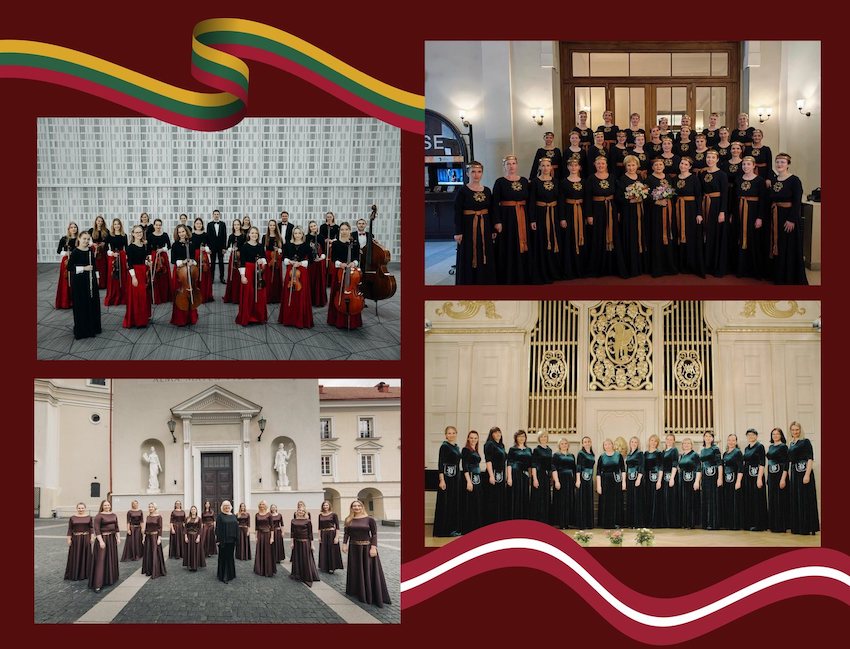
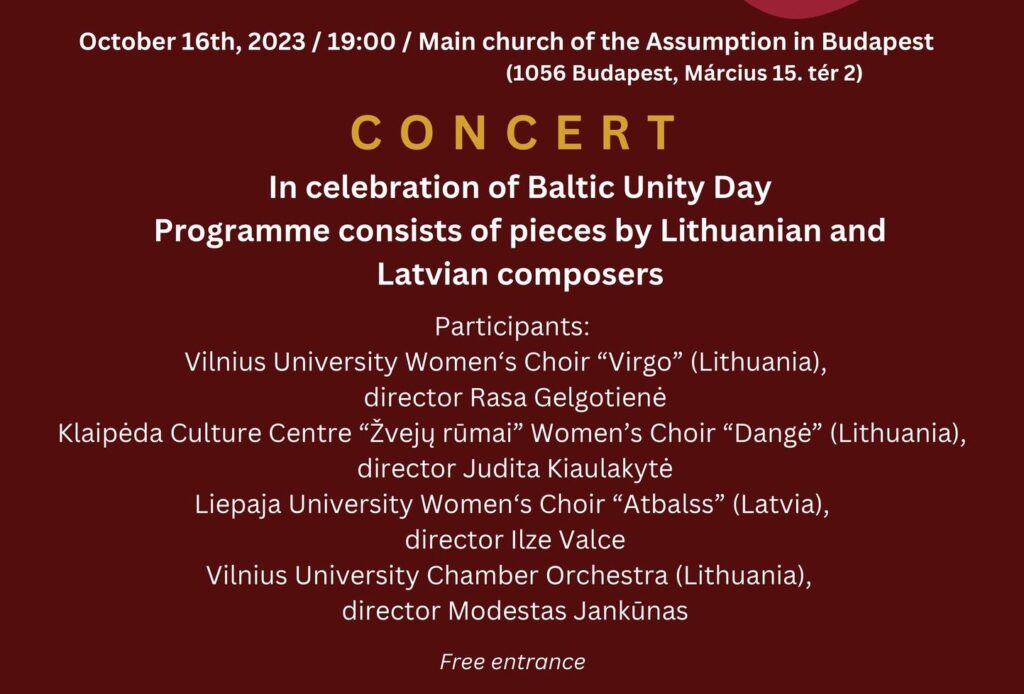
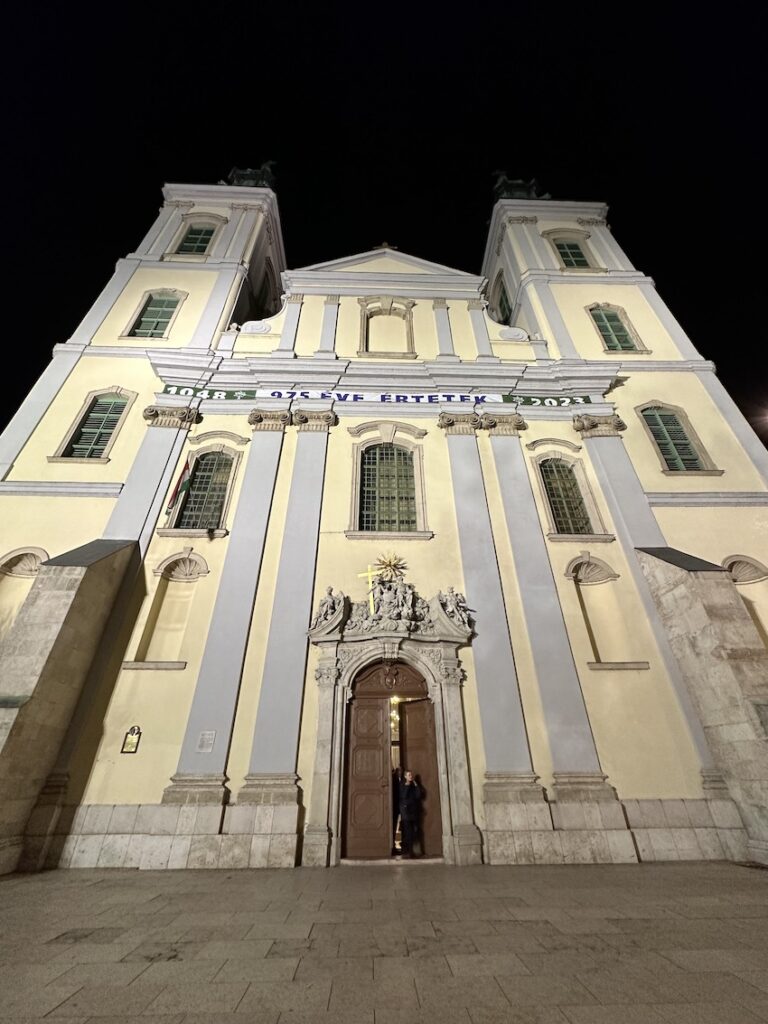
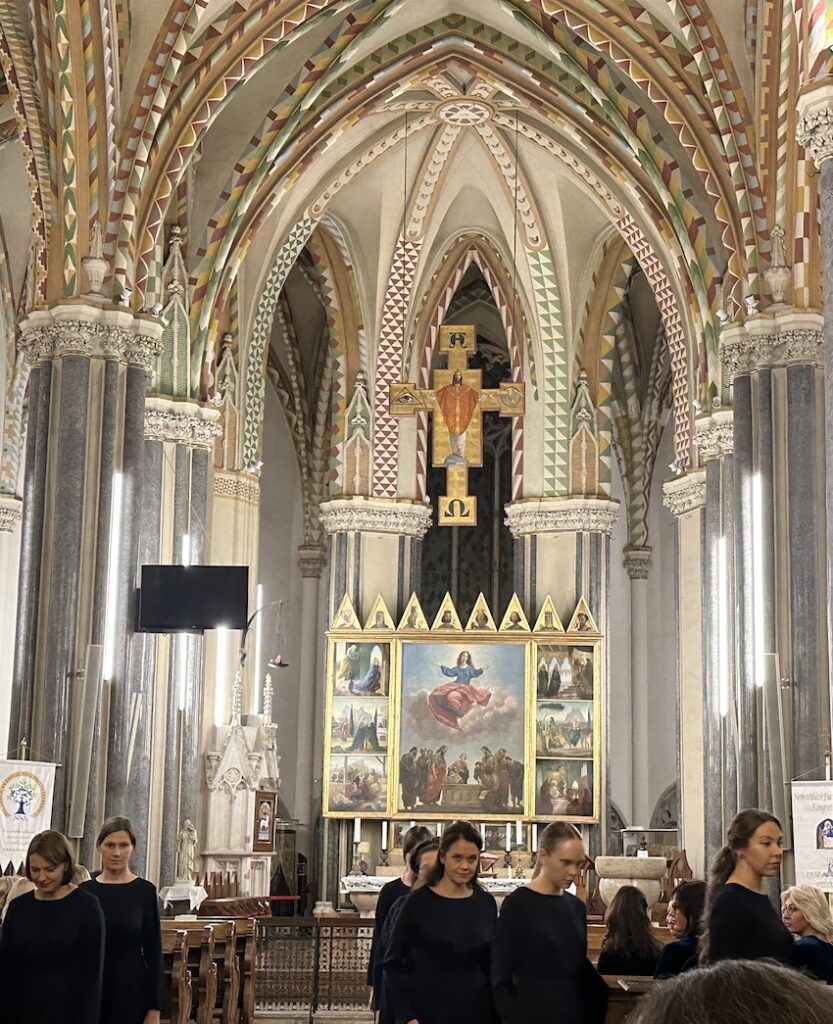
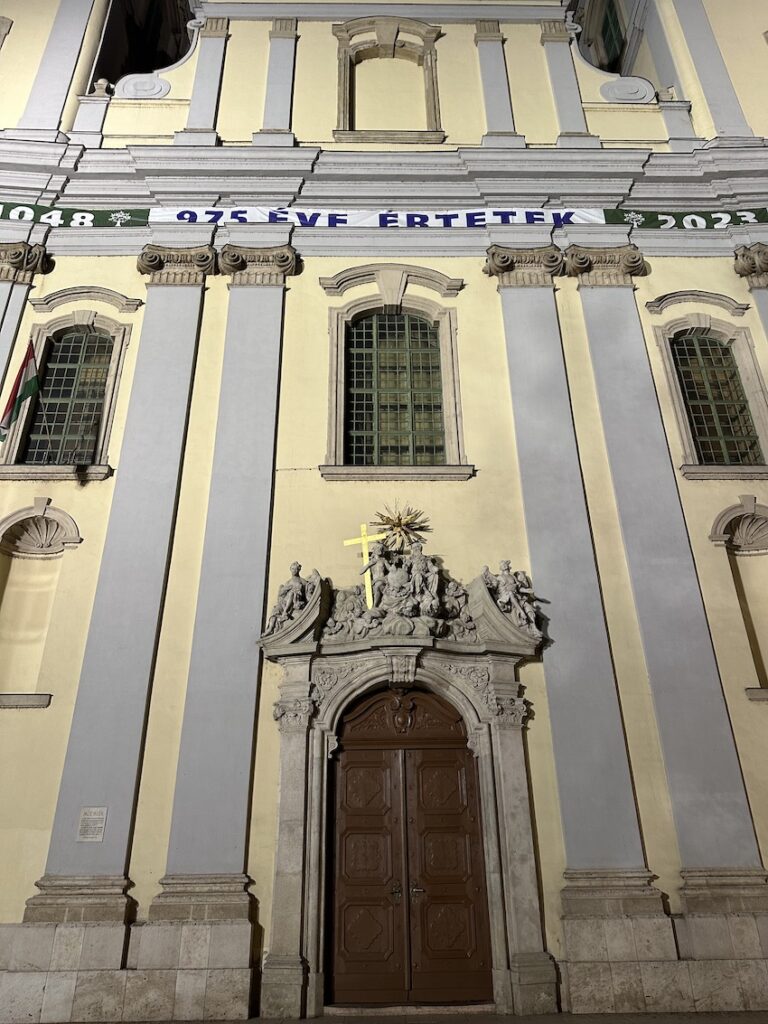
The event, as a harmonious expression of the shared history and cultural solidarity between the two nations, was attended by members of the diplomatic corps, guests from social and cultural circles, friends and nationals of the Baltic countries.
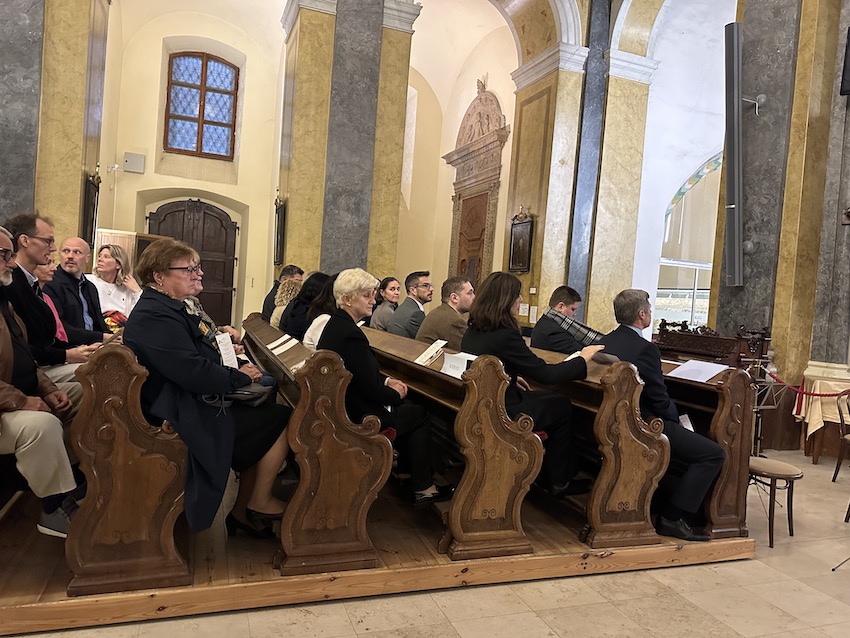

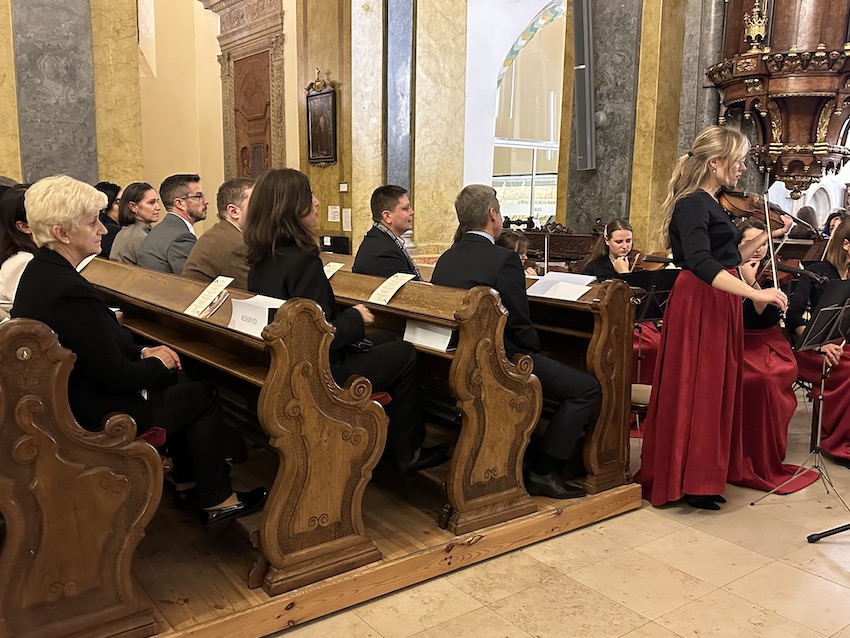
In his opening remarks, the Lithuanian Ambassador thanked the audience for their presence and highlighted the historical significance of the holiday:
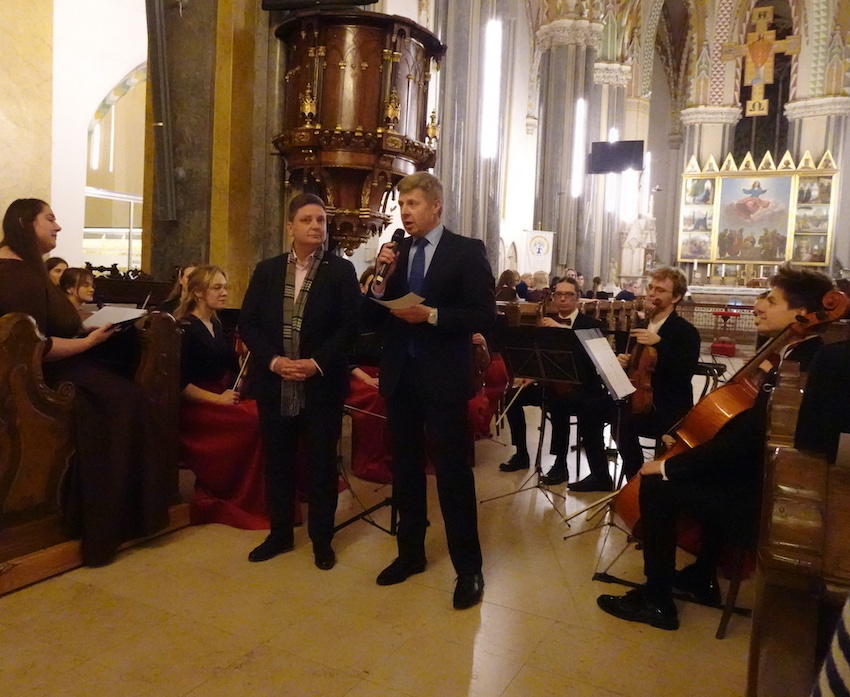
“In 2000, the Lithuanian and Latvian Parliaments declared the Day of Baltic Unity, which marks the victory of Balts in the 1236 Battle of Šiauliai, in which the joint forces of Balts defeated the Livonian Brothers of the Sword.
The victory achieved still serves as a source of inspiration today. Together, focused and united, we can overcome challenges and create a better future for our nations.
It is the unity that has helped the nations on the Baltic coast to make it and survive through a thousand-year-long history. It is the unity that has helped us overcome the feeling of fear, win the battle for freedom over the Russian Empire, at that time called as Soviet Union, and re-establish our independent states.
I am proud that both Lithuanians and Latvians are on the path of democracy. We are visible, audible and respected in the democratic European family and, most importantly, we retain our individuality.
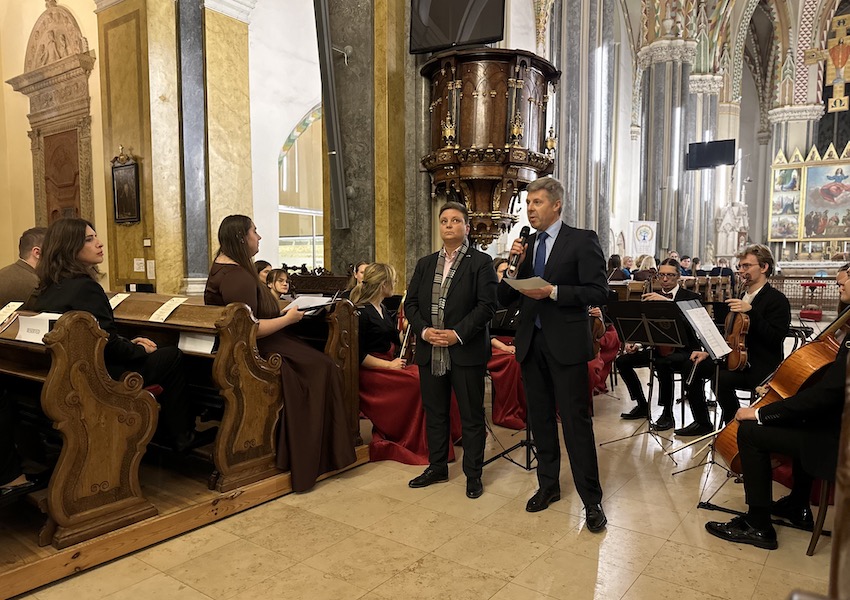
Russia’s war against Ukraine or the barbaric attack on Israel remind us that freedom and democracy are not self-evident values. It would be naive to think that we can feel safe while Ukraine or Israel suffer. In today’s geopolitical situation, we need to be even more united and work together to address the complex challenges with a view to progress and human well-being.
The Day of Baltic Unity is not just a holiday. It has a mission, important and highly significant for the development of cooperation between Lithuania and Latvia. It symbolically strengthens our relationships that have existed since ancient times. Therefore, I am very delighted to commemorate the Day of Baltic Unity in Budapest, the capital of Hungary.”
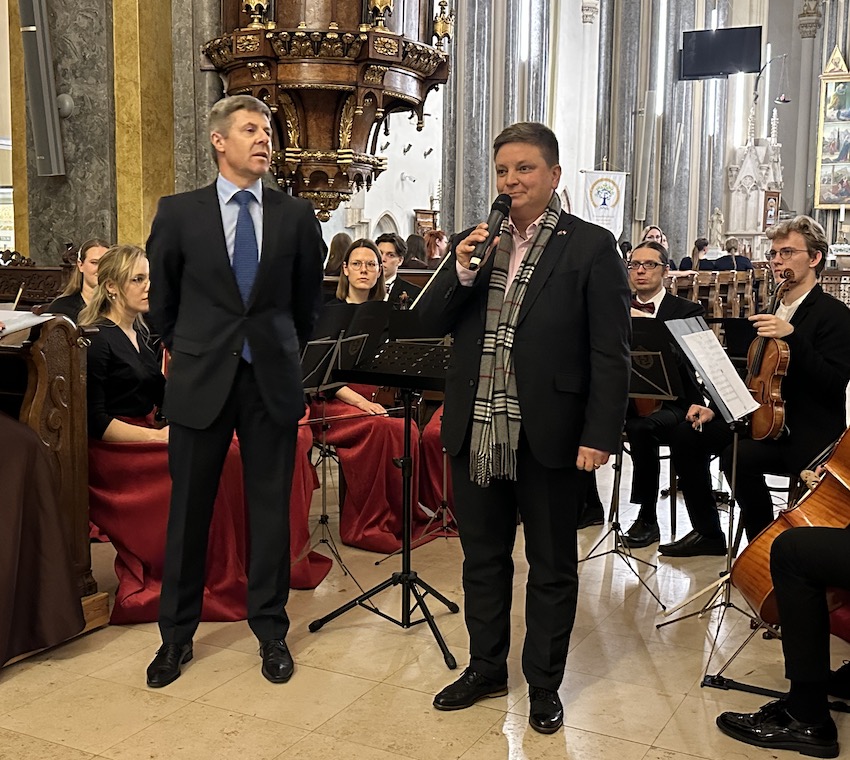
In her address, the Latvian Ambassador extended warm greetings to the guests and expressed gratitude to the numerous singers and musicians, totalling more than 80 performers, who had responded to the joint invitation of the two Embassies in Budapest, honouring the momentous occasion with their very special musical program. The artists’ collective contribution was instrumental in creating a memorable and meaningful celebration.
The rich and vibrant choral traditions have become an integral part of the cultural heritage of the Baltic states. These traditions, deeply ingrained in the fabric of their societies, have played a key role in preserving their unique cultural identities and fostering a sense of unity and community among the Baltic peoples. Choir singing holds an important place in the hearts of the people in their countries, reflecting their shared history and struggle for independence. Choral singing played a crucial role in the national awakening and preservation of cultural identity during the Baltic states’ fight for freedom. Choirs became symbols of resistance and unity, fostering a sense of community and national pride.

The large-scale concert in the main parish church of Budapest (celebrating the 975th anniversary of its foundation) was dedicated to this historic day and captivated the audience with enchanting pieces of music by both Lithuanian and Latvian composers, some of them inspired by folk music and others are intertwined with folk music elements.
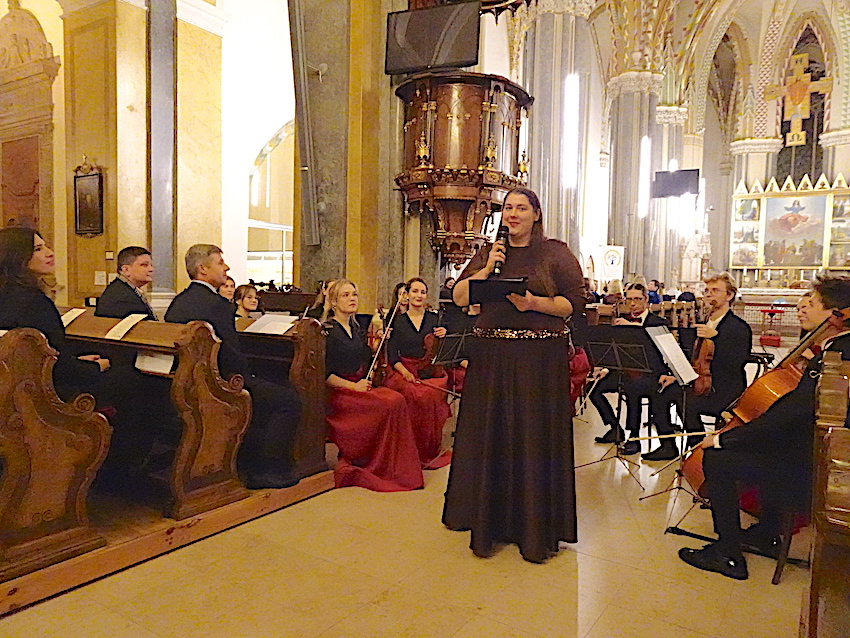
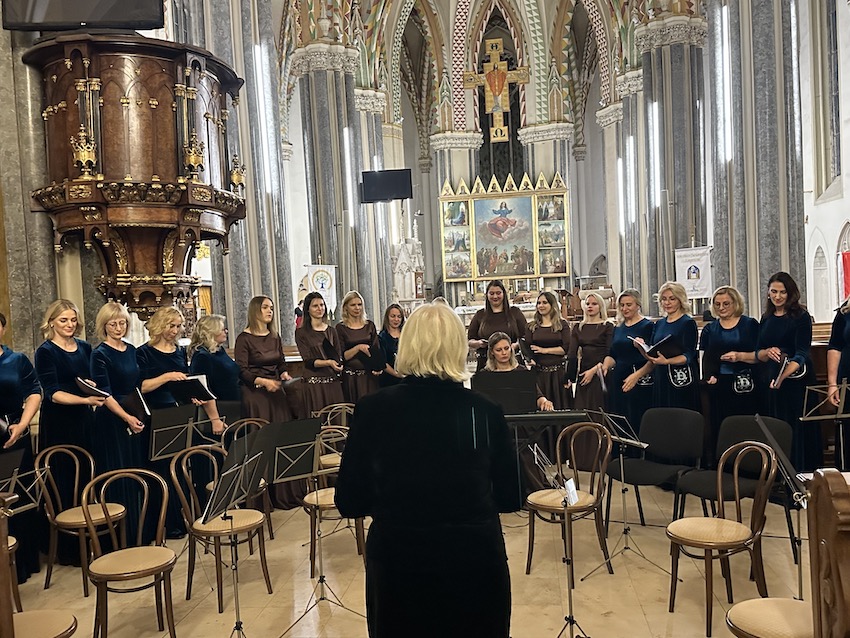
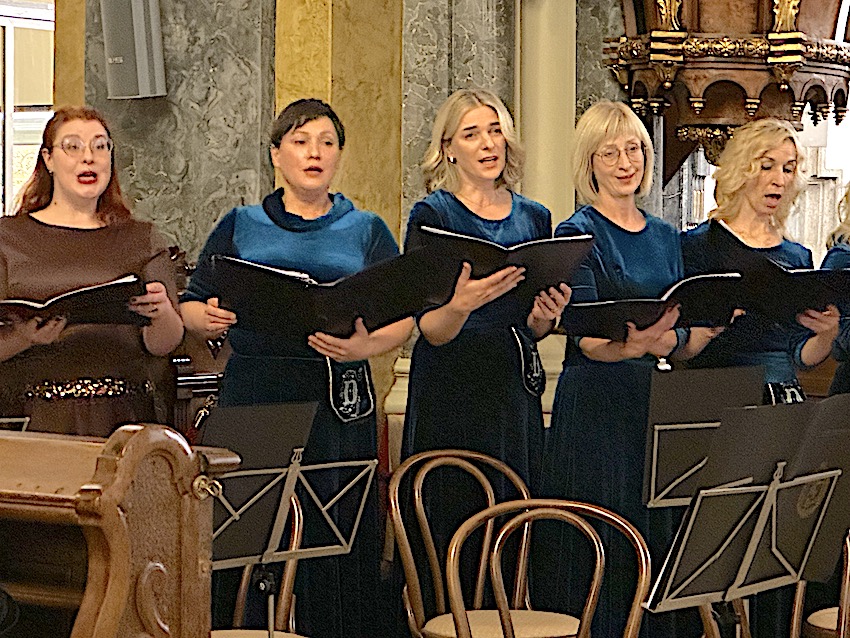
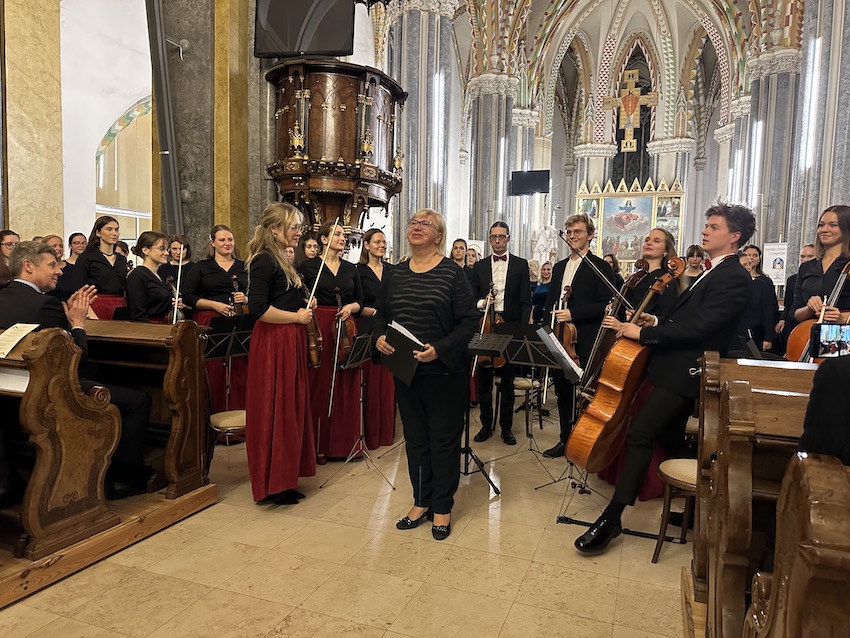
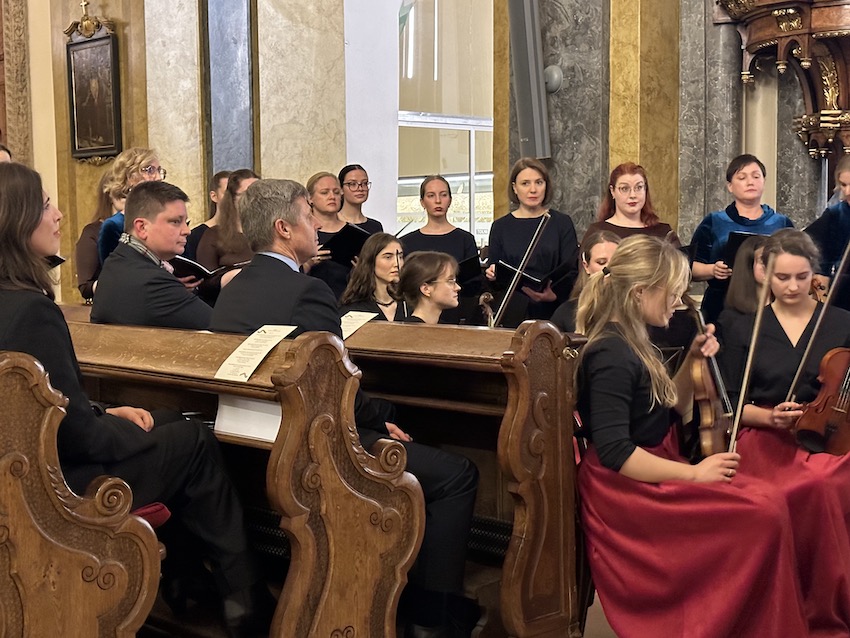
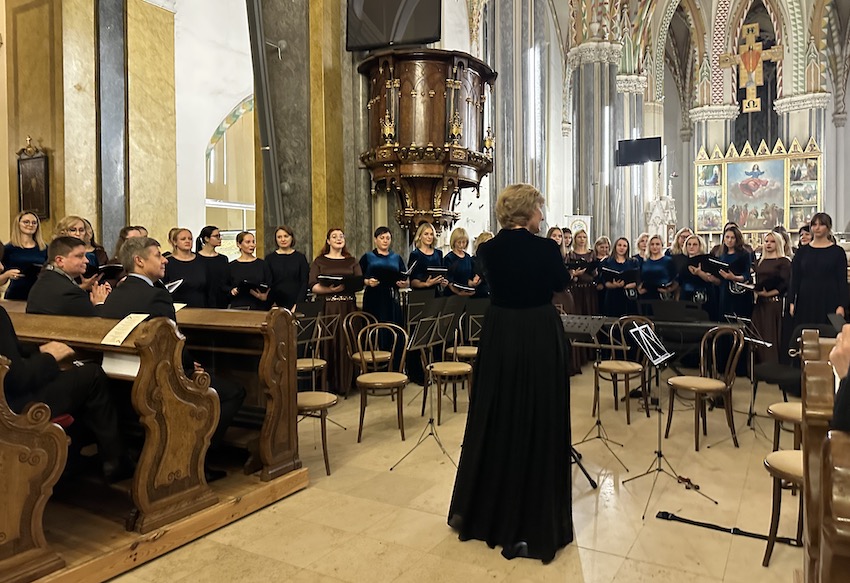
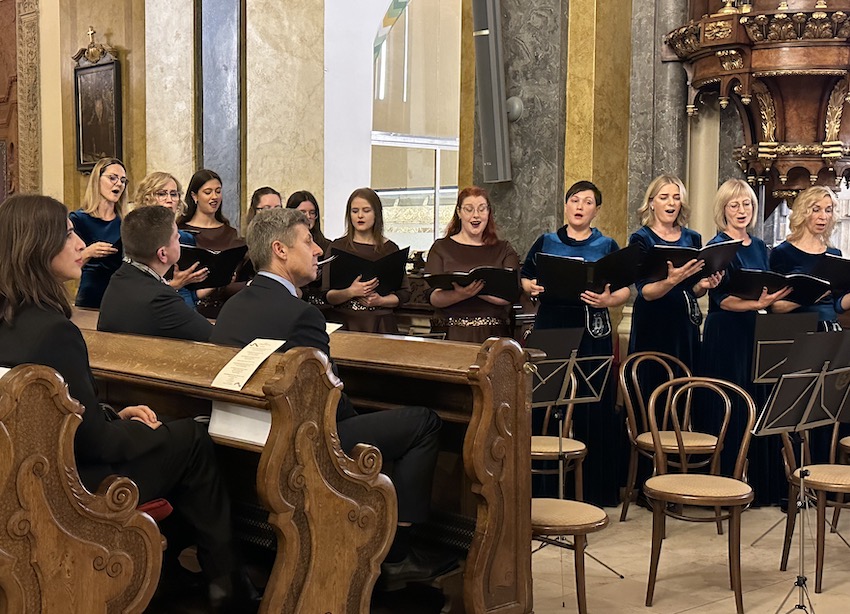
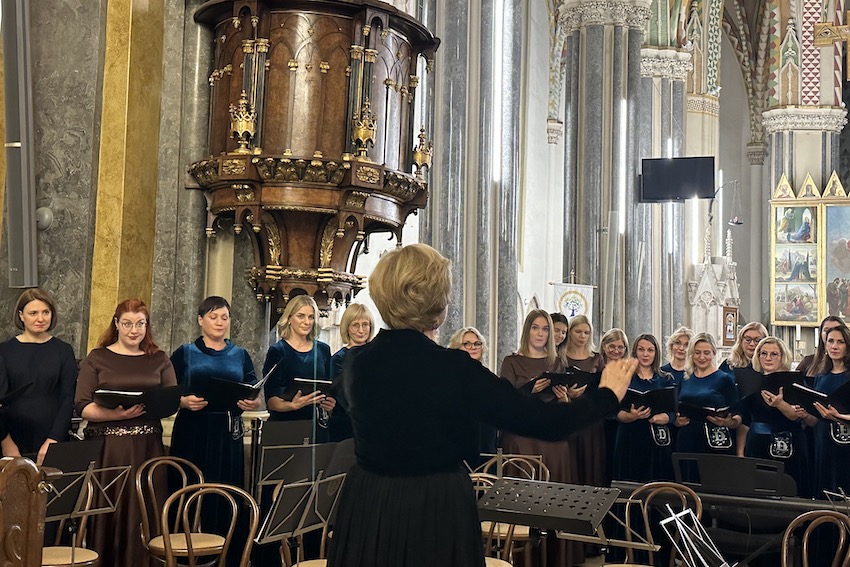
Rarely heard music pieces and melodies were brought to life through the performances of renowned groups, such as the Vilnius University Women’s Choir “VIRGO” from Lithuania – conducted by Rasa Gelgotiene, the “Dangė” Women’s Choir of the ŽVEJŲ RŪMAI Culture Centre in Klaipėda, Lithuania – conducted by Judita Kiaulakyte, the Liepāja University Women’s Choir “ATBALSS” from Latvia – conducted by Ilze Valce, and the Vilnius University Chamber Orchestra – under the baton of Modestas Jankunas.
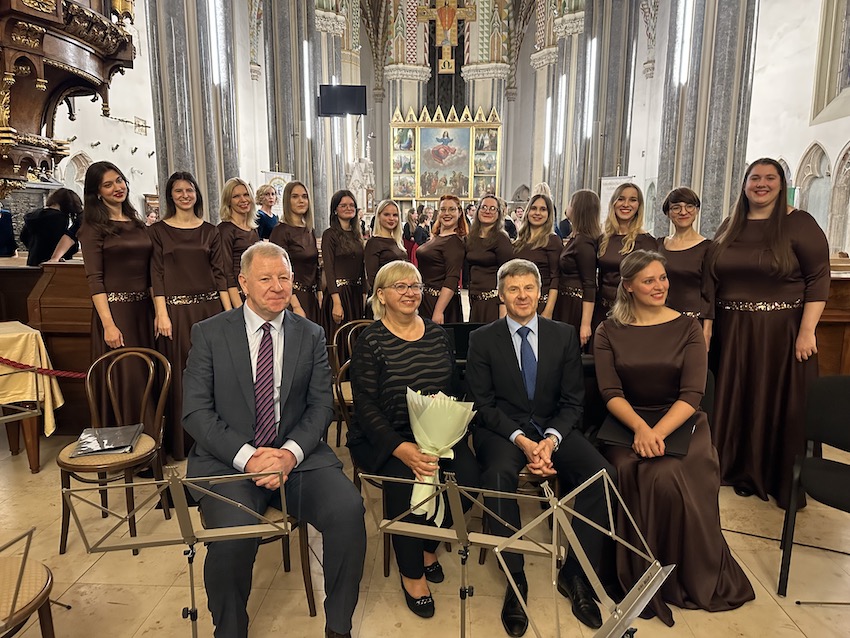
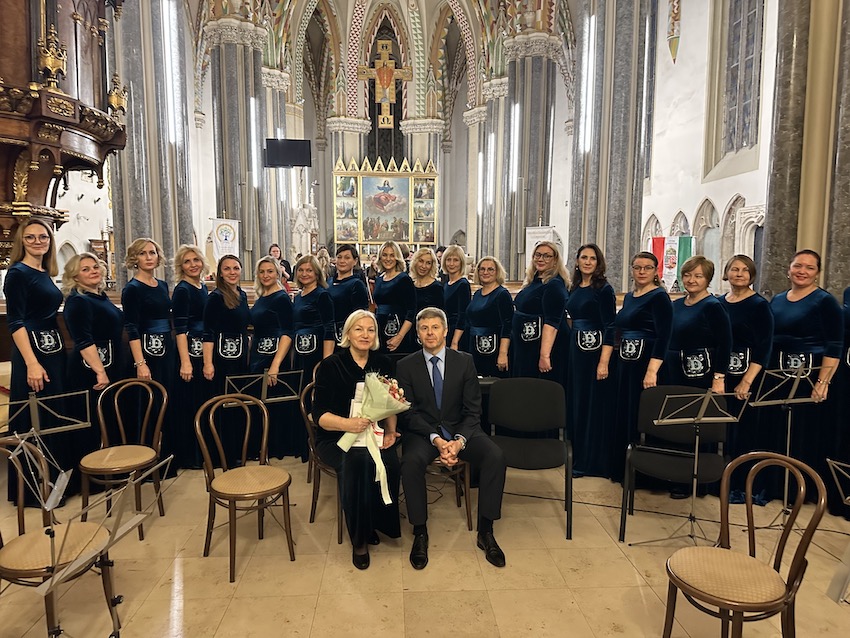
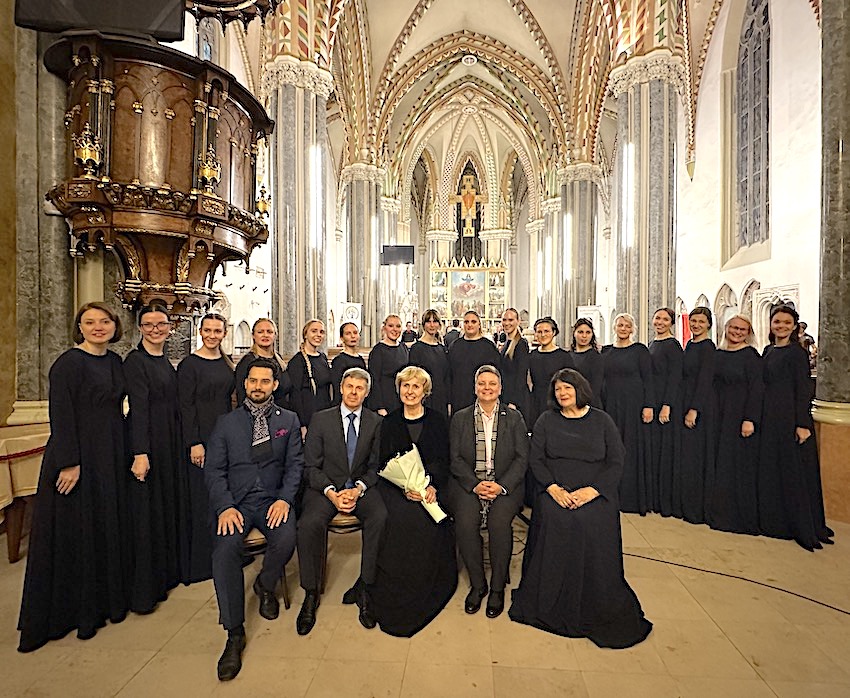
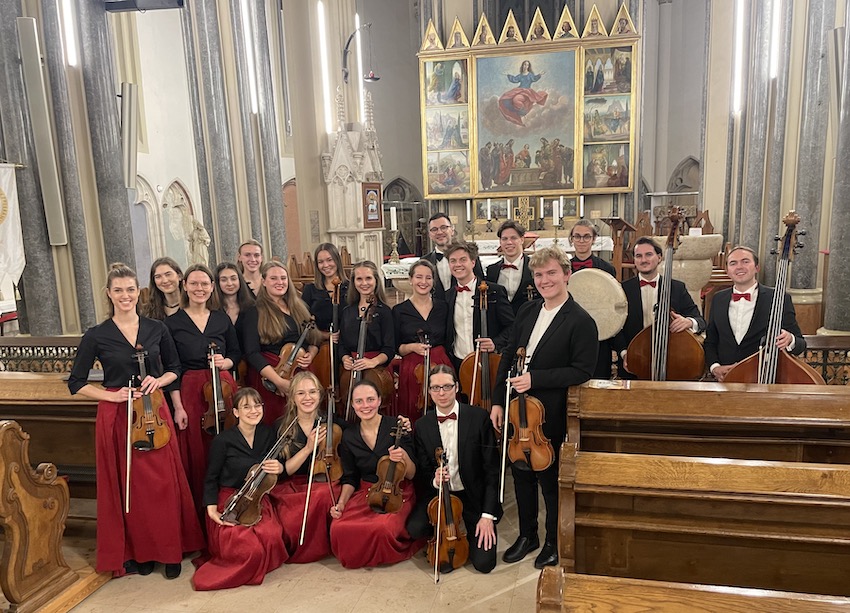
The exquisite renditions of the singers and musicians left a lasting impression on all attendees, performing at this highly historic place of Budapest.
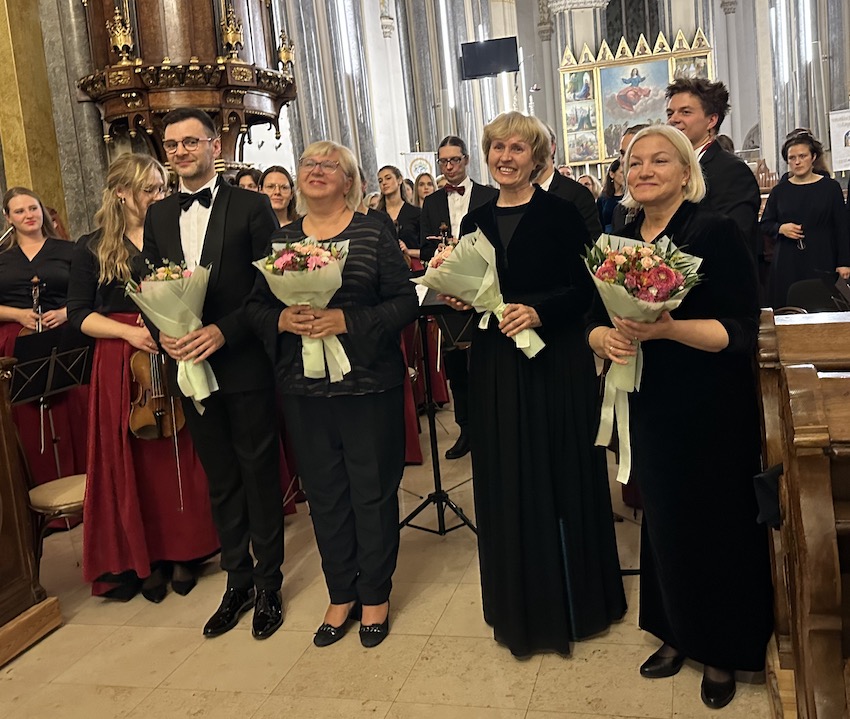
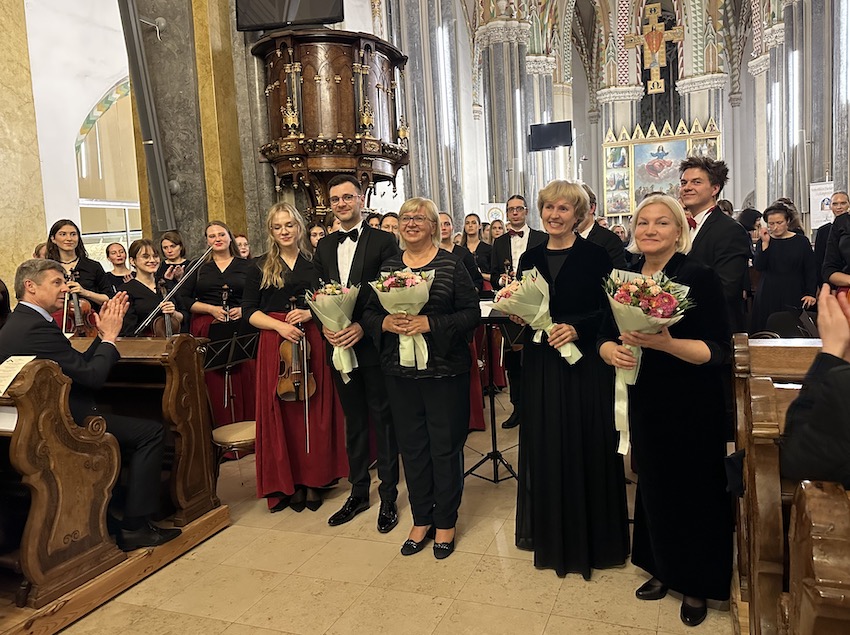
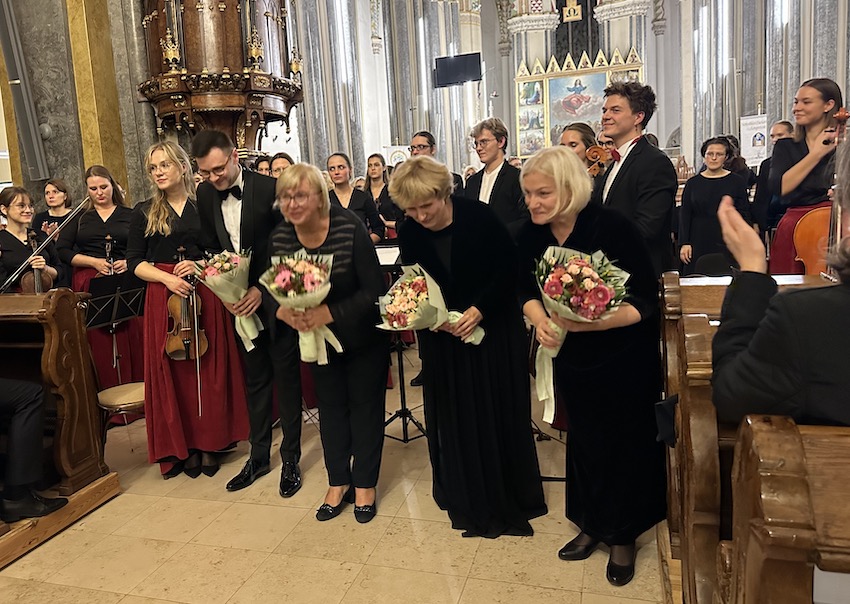
Today, the Baltic states are known for their grandiose song festivals and competitions, which attract thousands of singers and spectators from all over the world. These events showcase the immense power of collective singing and serve as platforms for celebrating cultural diversity and unity. The Baltic nations’ choir traditions symbolize a collective spirit of resilience, cultural pride and musical excellence, contributing to the region’s cultural identity and global artistic heritage. Baltic choirs have gained international acclaim for their exceptional performances and interpretations of both classical and contemporary repertoire.


Source: Embassy of Lithuania and Embassy of Latvia in Budapest
Photos by DPA

